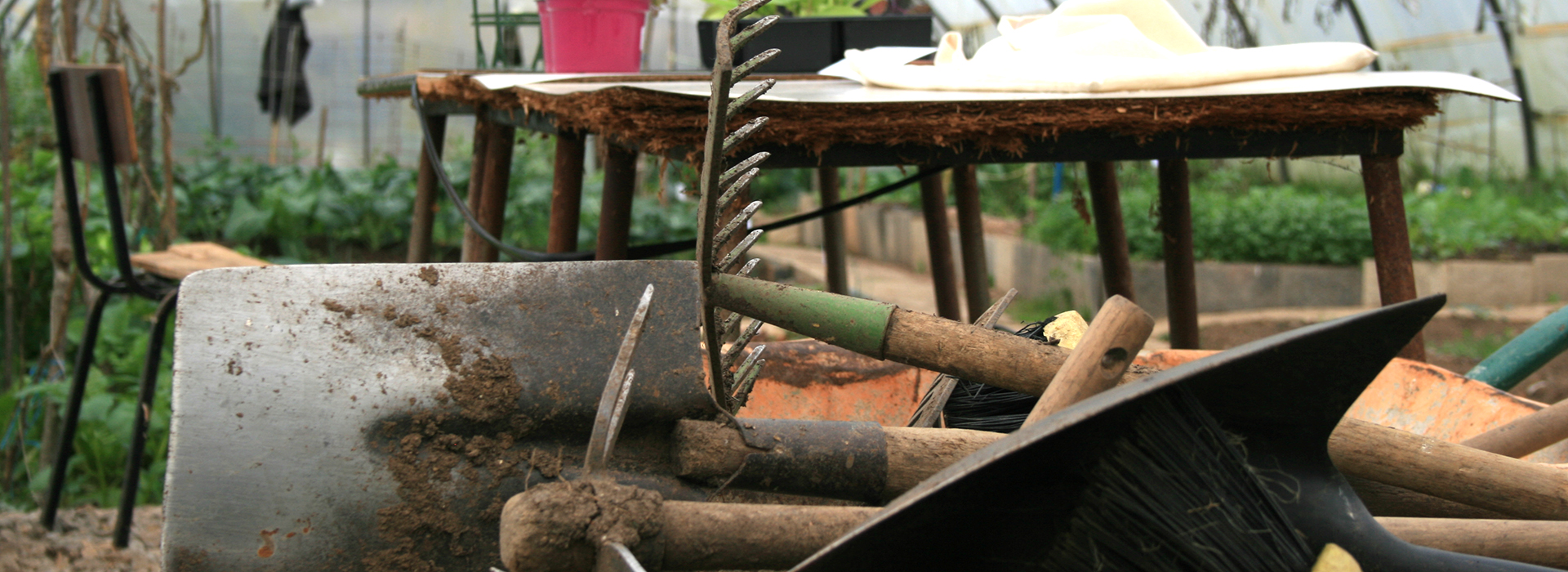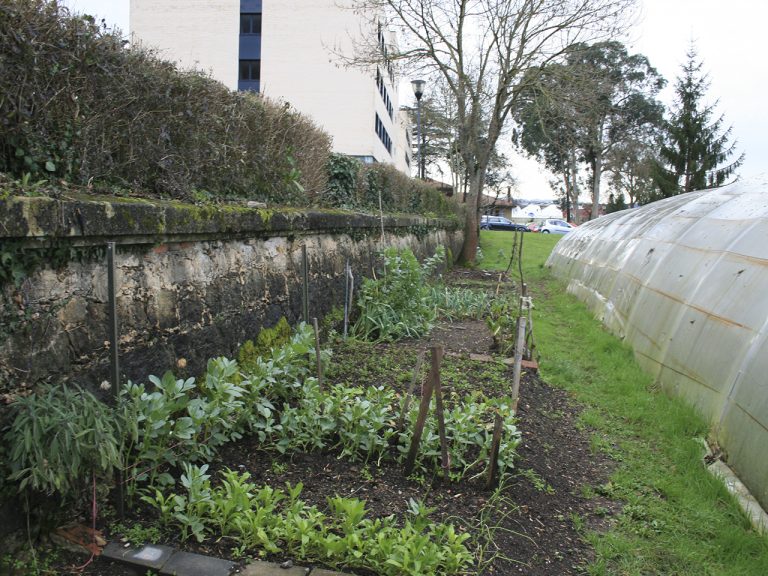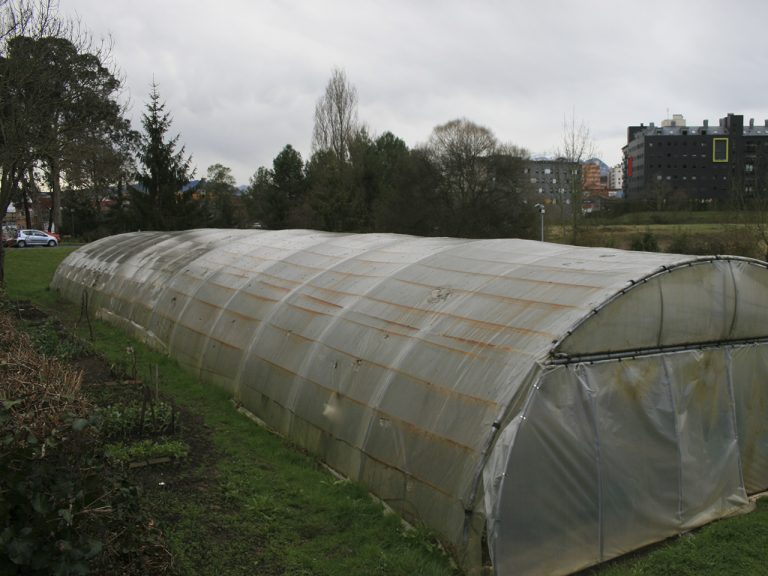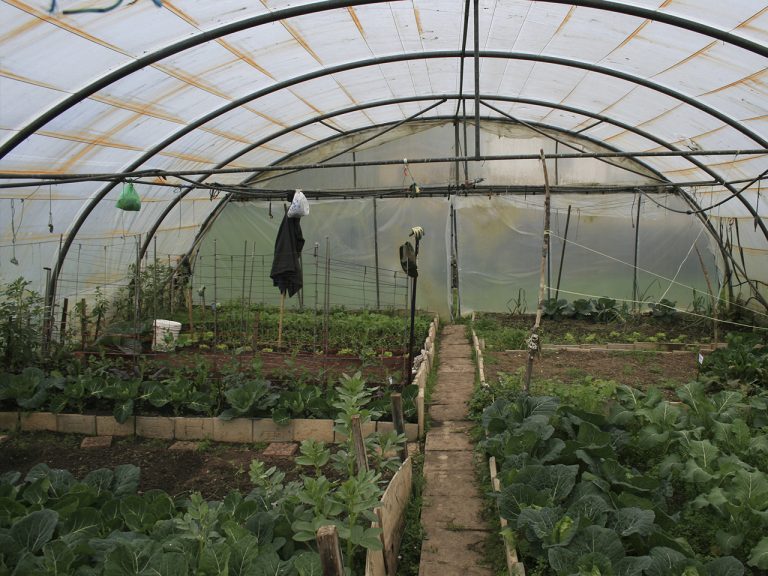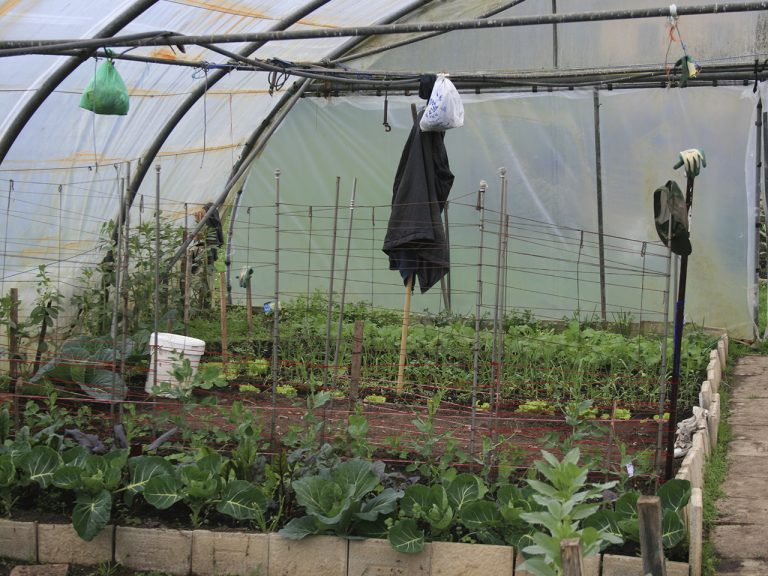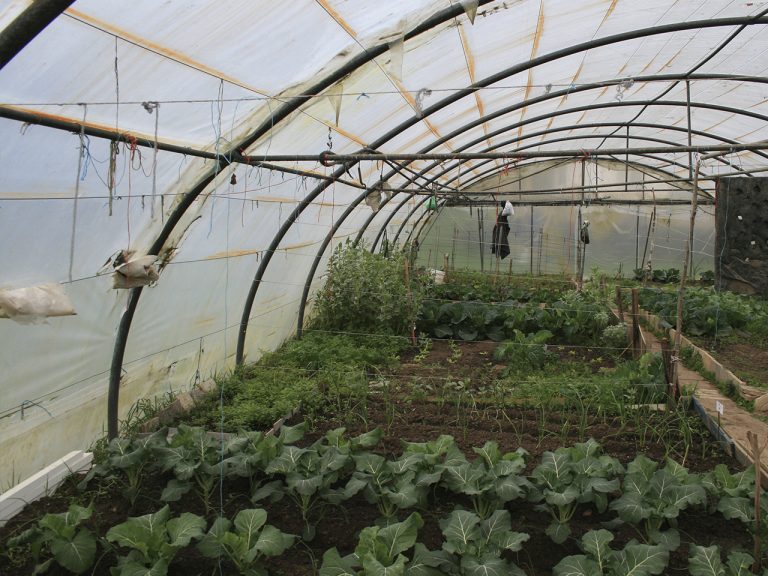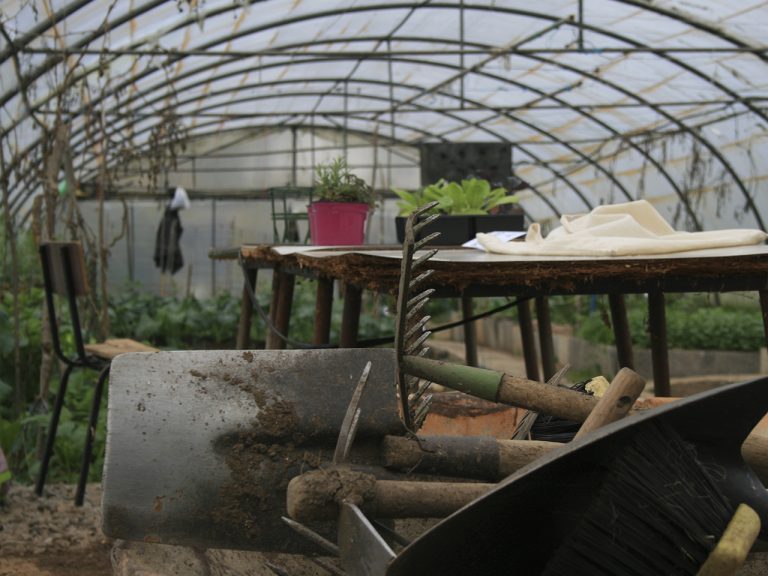Garden description
Huertas Acoge Project takes place in a greenhouse and classroom property of Fundoma Foundation through a collaboration agreement with Asturias Acoge.
During 2018, 13 migrants comprised of4 women and 9 men from Morocco, Senegal, Ecuador and Syria participated in the project.
The greenhouse is approximately 250 m2 and outside by the side of the greenhouse there is also a plot about 100 m2. The greenhouse and the outdoor land are divided into 8 individual plots.
Each plot is assigned to at least one beneficiary of the project for the cultivation of vegetables under organic principals. During the project, in addition to the individual work of each gardener, activities of cooperative work, training and intercultural activities are developed, in which each gardener is committed to participate in order to guarantee the maintenance of the garden and achievement of the objectives of the project.
The garden is rented by Asturias Acoge from Fundoma by a peppercorn rent of 1 € / Month assuming the costs of supplies (water and electricity). The contract is renewed annually. The initial costs were approximately 250 €: Fundoma provided the installed greenhouse and some basic tools.
The greatest effort was in cleaning, fertilizing and preparing the land that had been abandoned for several years.
Annually the expenses are approximately 700 € for rent and supplies (water and electricity), 200€ for materials (tools, some seeds and seedlings), 300 € for salary and social security (person hired by the association for coordination of activities). Sometimes this cost increases because new projects linked to Huertas Acoge are developed, for example in 2018 the project was developed: a garden workshop for schoolchildren through an agreement with the City of Oviedo endowed with 3000 € and a project which is called Medrando, aimed at minors of migrant families who benefit from the activities of the association with another 3000 €.
These costs are supported by the partner’s contributions, donations and grants (Oviedo City Council and Social Services and Rights Council). The garden has a greenhouse with plots, a classroom for the development of workshops and meetings, a changing room and toilets.
The main production of the garden is seasonal vegetables and aromatic plants.

 English
English  Deutsch
Deutsch  Español
Español  Svenska
Svenska 